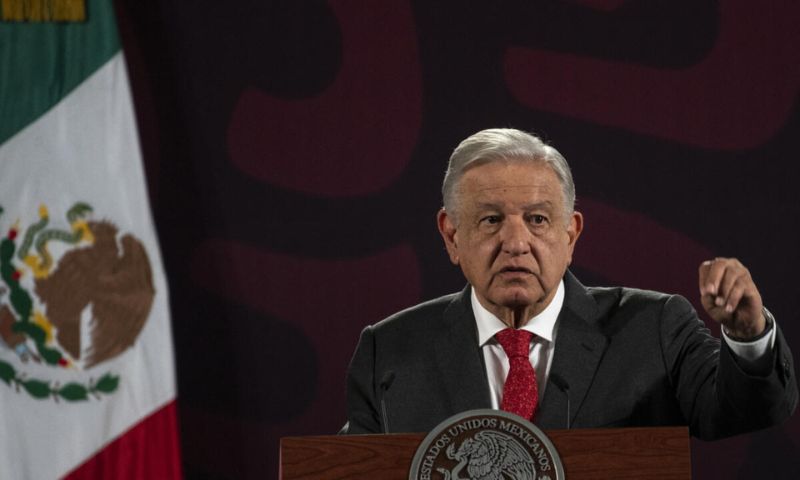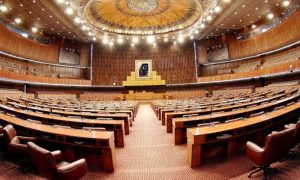MEXICO CITY: Outgoing Mexican President Andrés Manuel López Obrador has warned the Supreme Court against blocking his contentious judicial reforms, labeling such an action as a “flagrant violation” of the constitution.
The proposed reforms, which include electing Supreme Court justices and other judges through popular vote, have stirred diplomatic friction with the United States, triggered protests from opponents, and unsettled financial markets.
Judicial workers on strike have petitioned the Supreme Court to halt the legislative process, a request López Obrador dismissed as having “no legal basis.”
He condemned any attempt to block the reforms, stating at a news conference, “Stopping the process of analysis, discussion, and possible approval of the constitutional reform would be an aberration and a clear violation of the constitution. It would signal a preference for the law of the jungle and demonstrate a disregard for democracy and justice.”
The United States, Mexico’s primary trading partner, has cautioned that the reforms could “threaten” the bilateral relationship, which depends on investor confidence in Mexico’s legal system.
Lopez Obrador, who will be succeeded by his ally Claudia Sheinbaum on October 1, has criticized the judiciary as serving the interests of the political and economic elite. “The judiciary is corrupt, infiltrated with corruption,” he said. “Will they continue to protect foreign companies that exploit and harm the Mexican economy?”
The leftist president has frequently clashed with the Supreme Court, which has blocked some of his proposed reforms in the energy and security sectors.
Investor fears about the reforms have contributed to a sharp decline in the value of Mexico’s currency, the peso, which recently fell to a two-year low of over 20 pesos per dollar.
The lower house of Congress approved the reforms on Wednesday, with López Obrador’s Morena party and its allies holding a supermajority following a decisive election victory in June. The proposals are set to be debated in the Senate next week, where the ruling coalition is just one seat short of a two-thirds majority.























